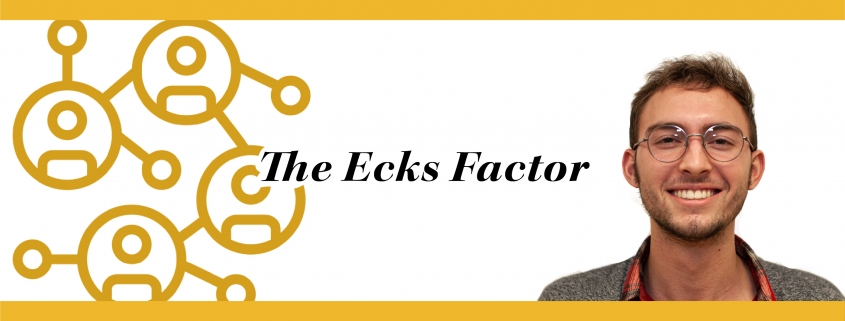The Eck’s Factor: Hypercompetitive pre-health academic culture is not conducive to fostering compassionate physicians

I do not like pre-health students. No worries though, I can say that: I am a pre-health student.
At this point in time, the hypercompetitive, cutthroat culture among pre-health students is an intercollegiate trope. I remember the time a classmate’s sample was stolen from the oven during an organic chemistry laboratory practical. I know students who refuse to participate in study groups because they avow that helping other students may lower the curve and affect their chances at earning a good grade. I breathed a sigh of relief when other students in my neurobiology class had another exam on the same day as our midterm.
“This will lower the average, and that will be good for me,” I thought, succumbing to the merciless culture. Yet, believe it or not, USC’s pre-health environment is rumored to be on the less extreme end compared to other undergraduate institutions, such as Harvard and Johns Hopkins universities.
In a sense, this hypercompetitiveness is warranted, with the increasingly demanding and ruthless admissions standards for medical schools. For perspective, USC’s Keck School of Medicine received about 8,261 applications in its 2017 admissions cycle. Out of these applicants, 186 were accepted — a 2.3% acceptance rate. Other top M.D. programs follow the same pattern, with universities such as Harvard, Johns Hopkins, Stanford and Columbia all having acceptance rates under 5%.
Looking further at statistics, the average GPA for admits to Keck’s Class of 2023 was a 3.7, while the median MCAT score among admits was a 517 out of 528. Nationally, the mean and median MCAT score among test takers is a 500.
It is understandable why these statistics make students stress and obsess over their cellular biology grade and organic chemistry lecture curve. However, this hypercompetitive nature is ultimately detrimental to the process of cultivating compassionate physicians.
When nearly all emphasis in gaining admissions to medical school is placed on a letter grade and test score, toxicity flows rampantly. In a 2017 Kaplan Test Prep Survey among MCAT students, 86% of prospective M.D. students believe pre-health academic culture is “too competitive,” with 19% of respondents claiming they or other students they know have been bullied in a pre-health academic setting. Students also recall other pre-health students who have offered incorrect study guides in efforts to sabotage other students to raise the academic grading curve in their classes.
Naturally, this lack of empathy seeps from undergraduate programs into M.D. programs. I have seen Twitter advertisements from medical school students offering consulting services to prospective undergraduate students for hundreds of dollars instead of just offering advice for free. Researchers at Yale University published a study in “JAMA Internal Medicine” that postulated higher rates of discrimination among minority medical school students compared to their peers.
While other factors may certainly contribute to this mistreatment, these patterns of apathy in the medical school setting follow a paradox; these environments are expected to educate physicians capable of building trust with their patients. If this is the kind of paradigm conspiring from the current medical school system, what does this say about the values of aspiring physicians? Do students truly want to help people and improve the field of medicine, or do some students’ motives stop short at the occupation’s prestige and high median salary?
To counter the counterintuitive setting of pre-health academic culture, students must start by expanding their perspectives beyond their letter grades. Trust me — I want to do well in my classes and earn a GPA that will make me a competitive applicant for medical schools, too. Yet, dishonorable approaches to success and poor character ultimately negate the integrity in earning a high GPA, supposedly a predictor of success. Tangentially, cutthroat culture is a form of academic dishonesty.
Moreover, perhaps students should take more pride in other classes that can prove conducive to becoming a physician, such as “Sociology, Demography and Health,” a sociology lecture centered around discussing the role of social inequities in healthcare. More students should adapt a sportsmanlike approach to classes and build each other up instead of sabotaging each other. At the end of the day, an attitude based on compassion will be more advantageous — not just to an aspiring physician but to their peers and the entire field of medicine.
After all, we are all in this together, right?
Matthew Eck is a sophomore writing about culturally relevant social issues. His column, “The Eck’s Factor,” runs every other Thursday.

